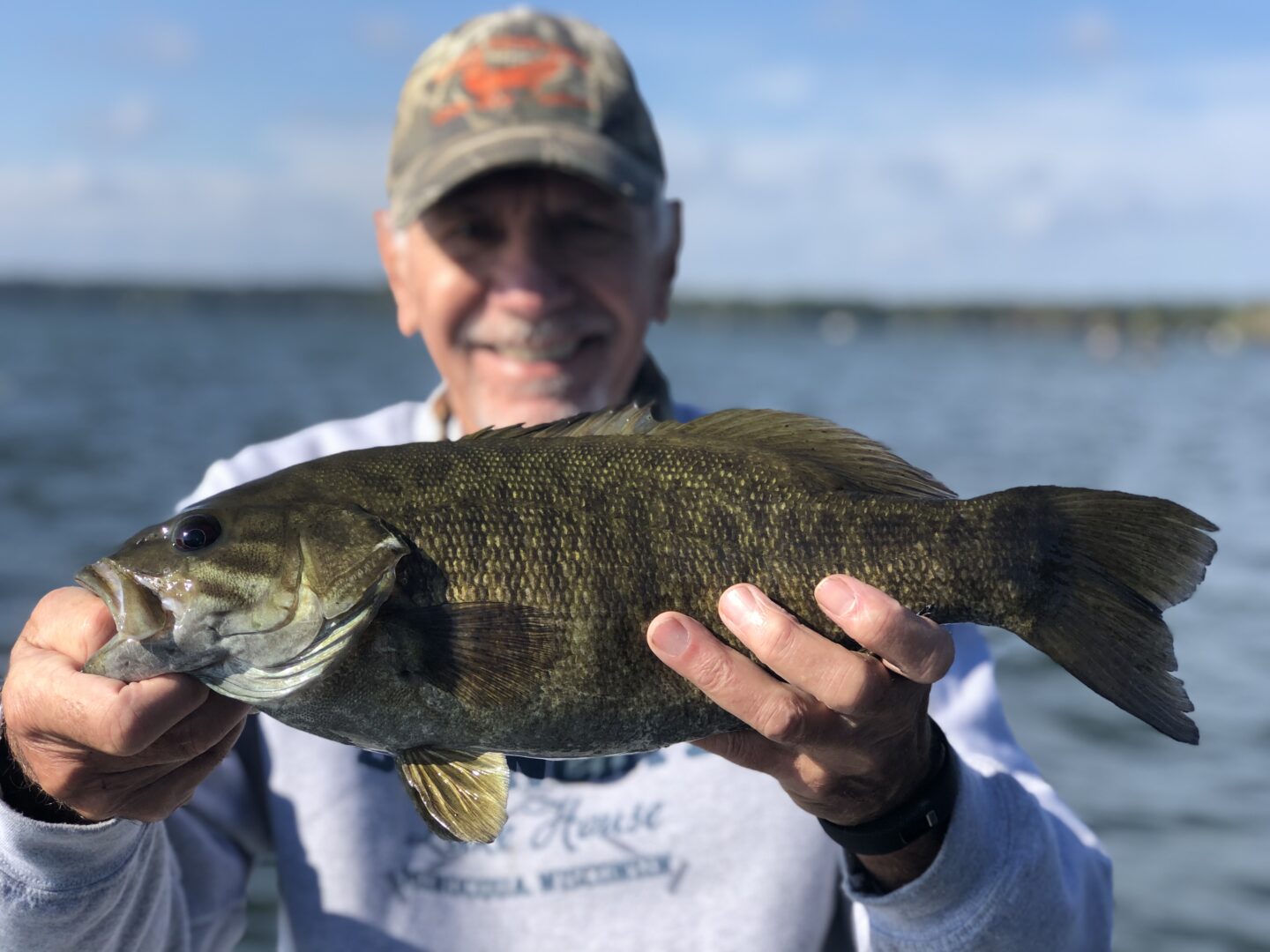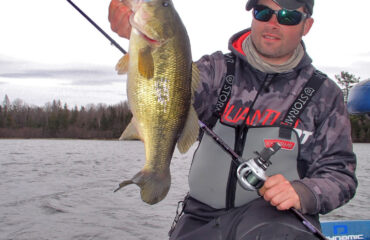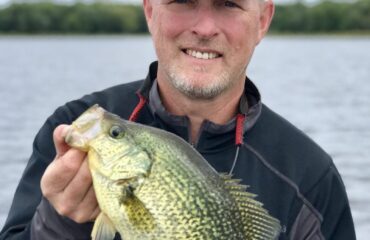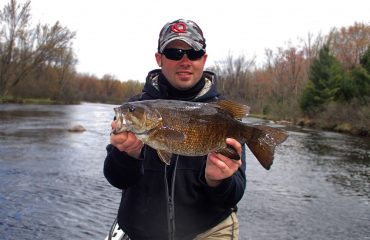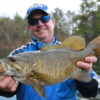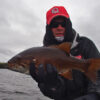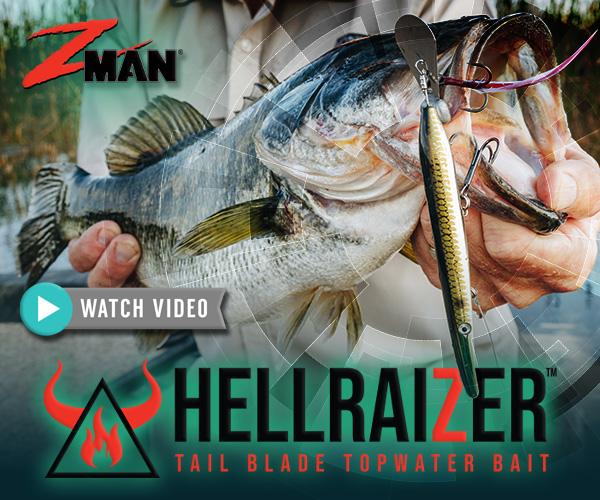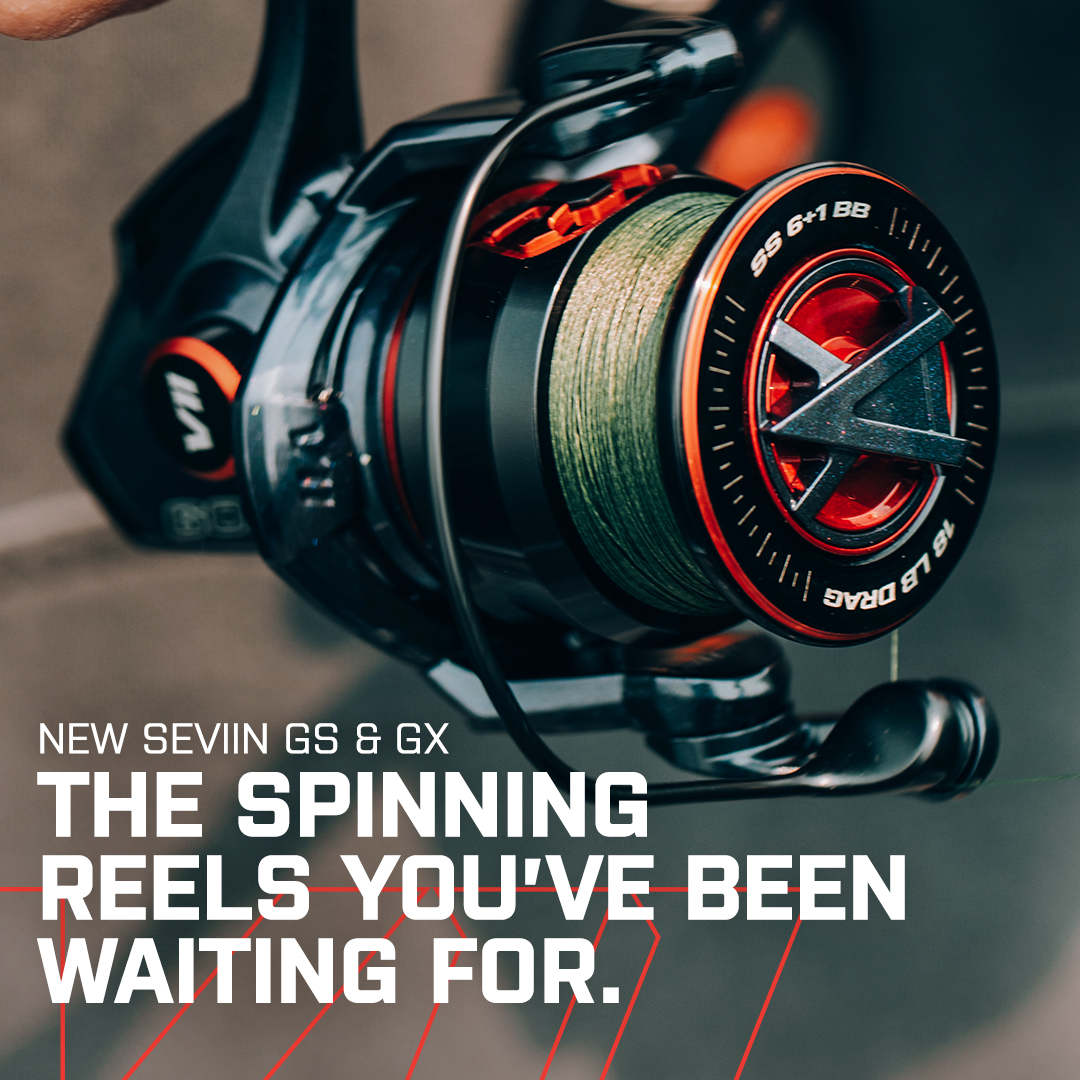Take What the Lake Gives You
Stubbornness is our worst enemy, and falling under its spell ruins every trip. It’ll dictate how and where to fish, throw you off course, and ultimately prevents from catching.
Good anglers will do their homework for upcoming trips. Research gets done. Gear gets packed. The boat is prepared with specific tackle. And the fishing itinerary is set. When bites change, the best anglers will be flexible to all possible scenarios and adapt to them quickly. Stubborn anglers, on the other hand, will experience trips that went poorly.
Leading up to your day on the water, fishing expectations are very high. However, after launching, the lake isn’t fishing as advertised, and its smallmouths are misbehaving too. Meanwhile, a few accidental catches are coming instead, proving that other species are biting best. The environment and lake conditions are telling you to go do otherwise, and yet you fail to make the adjustments and take what the lake gives you.
We’ve all been in this position before. It sucks, but those who adapt will salvage their trip. Taking what the lake gives me is my modus operandi. Guiding, I wouldn’t be able to do my job without this operative. I can turn nothing into something fairly quickly. Some guests adapt alongside with me. Others have refusal.
Each season, 99.9% of my clientele sign up for smallmouth trips no matter the conditions, several months in advance. This is what I want every day. I accept the challenge, but am unable to control the weather, fish behaviors, and how the rest of the lake responds. As one who has intimate relationships with each lake I guide on and its fisheries, I know better when not to fish smallmouth on certain days. I forewarn clients the days and hours leading up to trip day with recommendations we should consider fishing lakes and other species that will respond best to our conditions. Unfortunately I have very little power to change other people’s fishing goals and attitudes, unless they experience an enlightening moment themselves. On trip day when it’s clearly obvious we should be fishing for other species displaying their dominance, I still can’t make some folks accept that it’s okay to fish for largemouth bass, muskies, or walleyes instead.
Changing Conditions and Other Species
Let’s discuss first the metaphysics of multi-species fishing. Perhaps the only constant we have is change. Conditions change seasonally, monthly, weekly, daily, hourly, and by the minute. It’s all relative to the weather and forces of nature, all of it beyond our control.
Newton’s Law is applicable to fishing. For every action, there is an equal and opposite reaction. Every change in conditions elicits new responses from fish. They could shift locations or quit feeding altogether.
Coldfronts are everyone’s nemesis. When they blow through in spring and summer for instance, walleyes, smallmouths, crappies and yellow perch are affected by them the worst, becoming inactive bottom dwellers. Meanwhile muskies, northern pike, and largemouths could each fire up, with positive responses being triggered.
As anglers, we are the third link to this chain of events. When conditions change and certain fish species respond negatively or positively to it, we must adjust our locations and strategies in order to continue catching. Likewise, we must also be willing to change our fishing to, and accept, other species if their behaviors and positive reactions to the changing conditions have been identified.
Astute and successful fishing guides are often able to interpret changes and adapt to them. It is a matter of survival and earning a livelihood. It goes beyond fishing skill. Guides must know how weather changes affect smallmouths, largemouths, and other species. Beyond that, the lakes they fish too! They must also have confidence and the courage to adjust locations, techniques, or know when it’s the right time to switch lakes.
It’s rare to have a trip day in which conditions don’t change. When we can react to changes quickly and appropriately, and have willingness to salvage our day, my guests go home successful anglers.
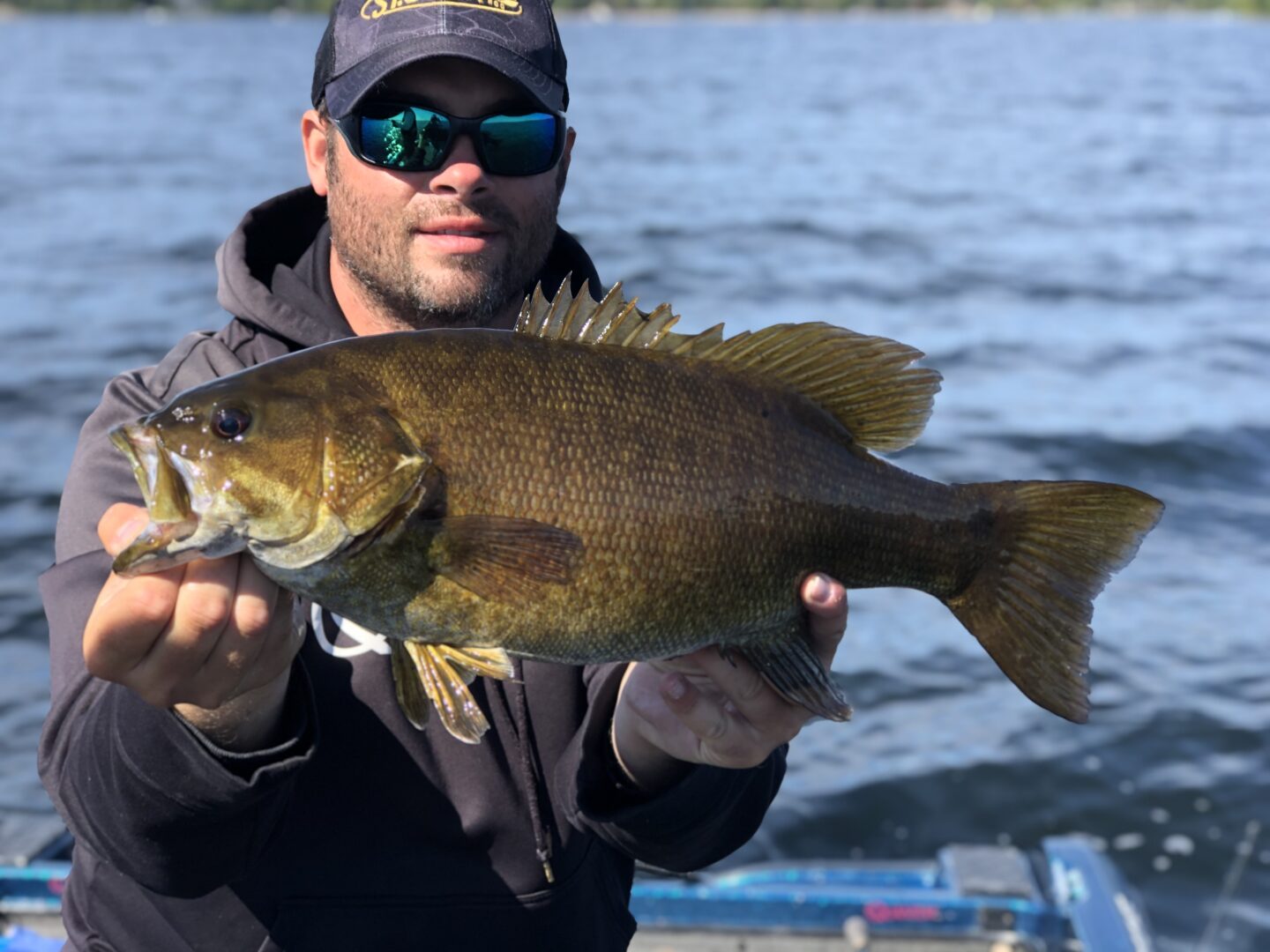
Fishing Flexibly
Few hardcore bass anglers, and those who may strictly pursue other species, have the preparation skills, intuition, and readiness to tackle environmental changes successfully. They’re unwilling to relent in their ways, despite the lake and its fishery communicating back to them. This is all relative to the one-dimensional, live-by and die-by, fishing mentalities they possess.
Capitalizing on peak fishing conditions is all about right time and right place. We refer to this as window fishing. Good fishing occurs on good days. Challenging, but satisfactory fishing occurs on poor days. Bad fishing occurs due to a bad psyche and failure to adjust to changes, and one’s choice not to be receptive. We must take advantage of every scenario.
During my 2021 guiding season, not a single weather and bass fishing pattern lasted for longer than 24 to 36 hours, making the year our most challenging and difficult yet. From May through September, it seemed as if a new cold front blew through Northern Wisconsin every other day. I had never endured more east winds either. And the only time of year we had steadiness was during mid and late October’s uncharacteristic heat waves, which was the poorest fishing month of the whole year. This takes a toll on all species. I don’t ever recall making so many daily adjustments, and scrapping of fishing itineraries that were planned the night before. The most important tip I’ll share is good smallmouth fishing is a product of good, stable weather.
The night before and days prior to their trip, I communicate with my anglers what their day’s expectation and outcome could be like. Some trip days go according to plan. Other trip days do not. We adapt on the fly.
On days with sunshine and stable weather, we will go smallmouth fishing on my A-list trophy lakes no matter what. We want to be on the best water on the best days and peaks of every season, and typically on them big fish are willing to bite. Meanwhile on days with some doom and gloom weather, our plan for the day might be smallmouth for half the day on action waters and higher population density fisheries with lots of habitat for them to hide in, and then settling for largemouth bass and other receptive species when conditions turn for the worst. Perhaps we’ll also switch to new lakes altogether that cater well to specific changes and conditions too. Then on days when everything could be a struggle no matter what, such as thunderstorms, high winds, coldfronts, and other instabilities, the wisest decisions to make are lowering our standards significantly and settling on fisheries that can produce for us, or focus on a lake learning day. It won’t be about catching at this point.
The lakes and its fish will quickly tell you what to do.
Often, the best fishing days in my book go unplanned. Good fish are caught when least expected. One of the best trips we had in all of 2021 took place in this manner.
During the third week of September, 2021, I hosted a follow-boat trip with my great customers and friends, the Drancik and Confer families. Our plan was to focus on smallmouth and new waters for them. During the first 90 minutes of that trip, Bob Drancik and Kara Confer each caught their personal best smallmouth; 20 and 18 inchers on paddletail and tube jig respectively. The boat’s fishing goals were achieved in short order. Quickly after, sunlight turned to dark clouds, and light breeze turned to strong south winds making boat control near-impossible on the spots we needed to fish on the lake’s northern half.
After seeking more tolerable lake locations to spend the rest of our morning at, we hit a road block. We also revisited the same morning locations, only to catch nothing. At lunch time, we assessed the situation, evaluating that its smallmouth fishery turned off in response to the worsening conditions. Likewise, the lake’s other species followed suit. The anglers in my follow boat each struck out too. Two boats with 6 anglers caught nothing after 9:30 am. We had to reevaluate our fishing goals and priorities.
It was then determined to continue our day’s adventure on another lake for our second half of the day, one whose fishery and personality responds more positively to these newfound poor conditions working against us.
We jumped lakes, ditching smallmouth and all of their typical locations altogether. It wasn’t their day. Quickly, lemons were turned into lemonade. The remainder of our day turned into a highly explosive and entertaining mixed bag affair.
In mid September with pre-turnover conditions and cooling water temperatures, many fish species will invade the extreme shallows and habitats available for feeding. Commonly, muskies, northern pike, walleyes, and bass co-mingle in shallow habitats if the lake is set-up for such species interaction.
We were going to conclude our trip at 4pm, but we just kept on fishing 2 hours longer into overtime as the lake instructed us to. I’ll never return my guests to shore if it’s a hot bite like this. Muskies were active atop the lake’s windblown rock humps and shallow coontail patches. Hungry walleyes and chunky pike were buried in the same coontail and other near-shore weed bars. Likewise, largemouths and smallmouths were all over the place in depths shallower than 3 ft. It’s unknown to me whether fish were already set-up in these spots long prior, since it had been 2 months since I had last fished it, or whether the day’s wacky weather drew them in. Our lake choice couldn’t have been more perfect!
During this 2 hour window, my boat had 6 muskies up to boatside with two eats and two-break-offs from heavier fish we had no chance of landing other than by hand, which I was prepared for. We also caught nice pike to 34”, and walleyes in the slot to 24”. The smallmouth made their presence known in the shallows too, with Kara hooking and losing a 4 pounder on a jump following her hook-set from long distance. Not her fault, this would have been her second personal best of the day. Paddletails and swimbaits ripped through the cover and worked with steady retrieves caught every single fish. The follow-boat and its 3 anglers meanwhile caught and released muskies, northerns, and smallmouth too, following our same shallow water approach and strategy.
This was like Canadian fishing but localized on a small 400 acre lake in Wisconsin. Our party was the only boats out there. Had we remained stubborn to struggle on the first lake for smallmouth, our afternoon fishing would have been a waste of time for guests and me. This trip reaffirmed my love for fishing and why I chose to become a guide 7 years ago. The happiness of my guests and their willingness to follow my lead, element of surprise, and enjoyment that comes from multi-species fishing and its mixed bag of wonders is magical.
Fish flexibly!
Take What the Lake Gives You
Take What the Lake Gives You
Changes in conditions don’t make or break a trip. Rather, an angler’s poor reaction and failures to react does it.
Taking with the lake gives you is a fishing philosophy and a lesson that should become ingrained into the minds of all anglers. Forces beyond our control always affect and influence our fishing strategies and decisions, some for the better, and others for the worst. The best anglers fish with flexibility and have courage to adapt. Your upcoming fishing trips will be most successful when you take what the lake gives you.
Andrew Ragas splits time between the Chicago area and Wisconsin’s Northwoods. Based in Minocqua, WI, he specializes in trophy bass fishing and offers guided trips from May thru October. While big bass is the passion, he prefers taking what the lake gives him on some days. He may be visited online at www.northwoodsbass.com


